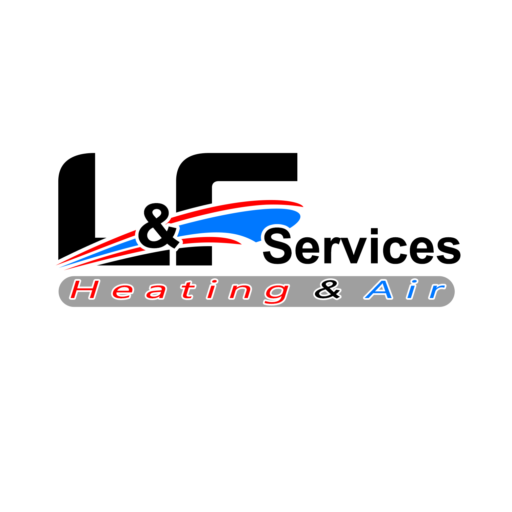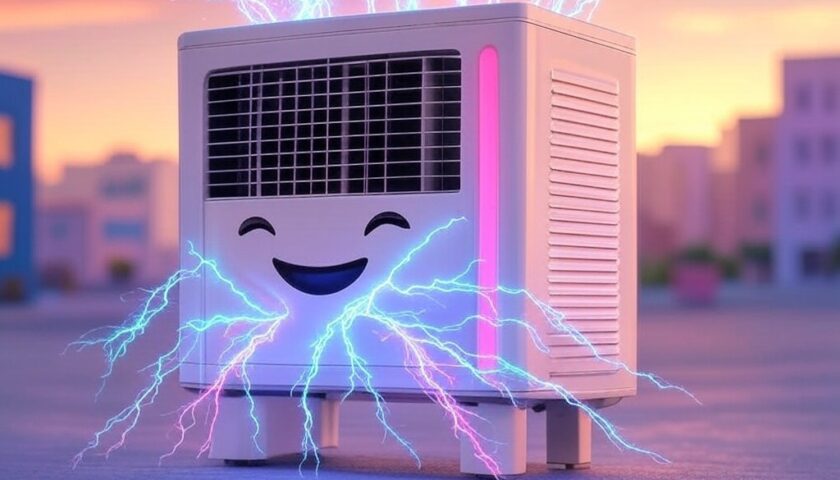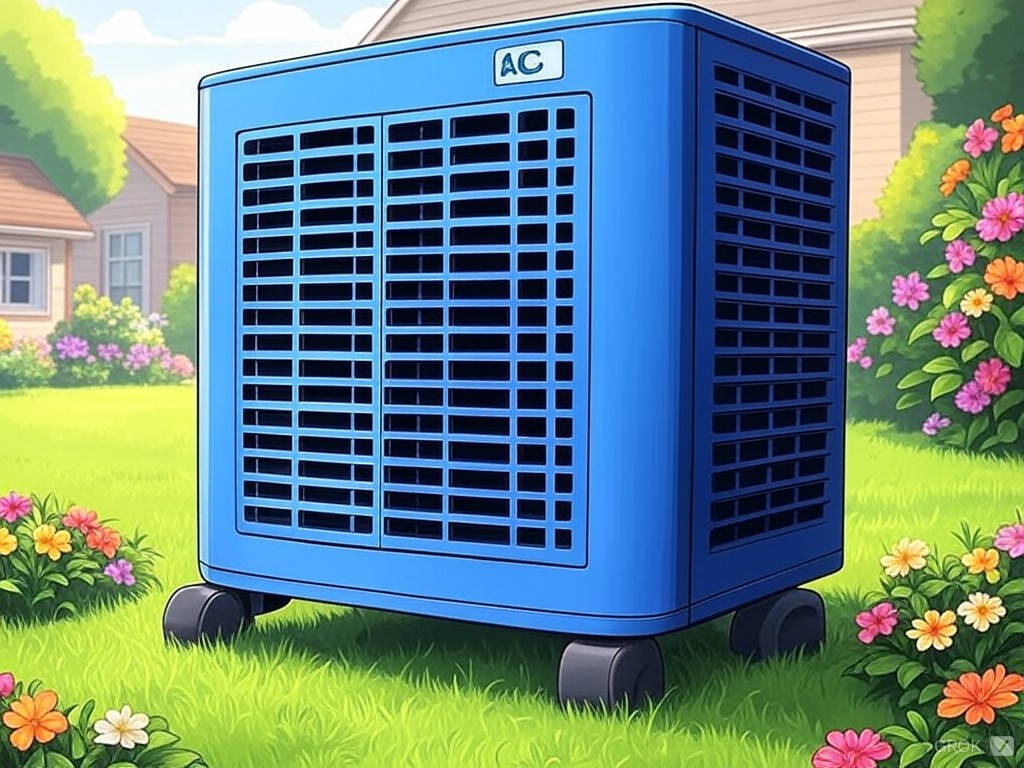As a homeowner, understanding the complexities of HVAC systems can be daunting. Yet, it’s crucial to make informed decisions about heating and cooling your home.
In Northern Alabama, the unique climate demands an efficient HVAC system. One that not only ensures comfort but also reduces energy bills and environmental impact.
This guide will delve into the most efficient HVAC systems expected to dominate 2025. We’ll simplify the technical jargon, highlight the benefits of energy efficiency, and guide you towards the best choices for your home.
So, whether you’re upgrading your current system or installing a new one, this guide will help you make a smart, energy-efficient choice.
Understanding HVAC System Efficiency
Understanding what makes an HVAC system efficient is key to selecting the best option for your home. Energy efficiency in HVAC systems is not just about reducing power consumption. It’s about maximizing performance while minimizing environmental impact.
In simple terms, a more efficient system uses less energy to maintain comfortable temperatures. This translates to lower monthly utility bills. It also means a reduced carbon footprint, which is increasingly important for eco-conscious homeowners.
Efficiency also relates to how well a system can handle diverse weather conditions. In Northern Alabama, systems must handle both hot summers and chilly winters effectively. Choosing the right system can therefore make a substantial difference in home comfort and energy costs.
Moreover, efficient HVAC systems often come with advanced features. These may include smart thermostats and variable-speed motors, which we will explore further. Understanding these elements helps in making a decision that balances both comfort and cost savings.
The Role of SEER Ratings in HVAC Efficiency
SEER, or Seasonal Energy Efficiency Ratio, measures HVAC cooling efficiency. A higher SEER rating signifies a more efficient system. This means it offers better energy use during peak summer months.
In 2025, look for systems with SEER ratings of 16 or above. They promise enhanced efficiency and cost savings. However, it’s vital to consider installation quality, as it impacts actual performance.
SEER ratings guide you in comparing different systems. But remember, efficiency also depends on your home’s insulation and climate. So, while SEER is crucial, it’s one part of a bigger efficiency puzzle.
The Advancements in HVAC Technologies for 2025
The HVAC industry is ever-evolving, with 2025 bringing notable technological advancements. Modern systems are incorporating features that prioritize efficiency and ease of use.
Inverter technology is one such innovation enhancing efficiency. It allows for variable compressor speeds, optimizing energy use based on demand. This means systems operate smoothly, even in extreme conditions.
Another noteworthy advancement is the rise of smart thermostats. These devices learn your schedule and preferences, adjusting temperatures automatically. This leads to both energy savings and increased comfort.
Additionally, HVAC systems are becoming smarter with the integration of AI for predictive maintenance. AI helps anticipate issues before they become costly repairs. It’s a step toward a future where HVAC systems are not only efficient but also remarkably user-friendly.
These technological improvements demonstrate the industry’s commitment to energy efficiency and sustainability. As a homeowner, embracing these advancements can substantially enhance both comfort and cost savings.
Most Efficient HVAC Systems for 2025
As we look to 2025, identifying the most efficient HVAC systems is crucial for informed decision-making. Advancements in technology have paved the way for cutting-edge systems that excel in energy efficiency.
Various options cater to different needs and preferences. Whether you’re interested in high-efficiency heat pumps or geothermal solutions, there’s an efficient system for every home. These systems not only offer superior performance but also significant cost savings over time.
Considering energy efficiency can transform home comfort while slashing energy bills. Below, we explore some of the top contenders in HVAC technology for the coming year. Each offers unique advantages tailored to specific climates and home needs.
High-Efficiency Heat Pumps
High-efficiency heat pumps are gaining traction as a top choice for energy-conscious homeowners. These systems offer heating and cooling by transferring heat rather than burning fuel. This process makes them remarkably efficient.
Features of high-efficiency heat pumps include:
- Variable-speed compressors for consistent comfort
- Advanced defrost technology to maintain performance in colder climates
- Smart thermostat integration for improved energy management
These pumps are ideal for mild climates but can also adapt to more variable conditions. Furthermore, technological advancements have made modern heat pumps quieter and more reliable.
One of the greatest benefits is their ability to lower heating and cooling costs. As electricity prices fluctuate, high-efficiency heat pumps provide a stable and economical solution. Consider these systems if you’re seeking a balance of efficiency, comfort, and cost savings.
Geothermal Heat Pump Systems
Geothermal heat pumps are the epitome of efficiency and sustainability. Unlike traditional systems, they utilize the earth’s consistent underground temperatures to regulate indoor climates. This makes them suitable for diverse environments.
Key benefits of geothermal heat pumps include:
- Significant energy savings due to minimal power requirements
- Environmentally friendly operation with reduced emissions
- Long lifespan and reliability thanks to durable underground components
These systems also offer the perk of providing hot water, further boosting efficiency. Initial setup costs are higher, but long-term savings make them an appealing option. Plus, government incentives might be available to help offset upfront expenses.
Although installation requires specialized expertise, maintenance is relatively low. By tapping into natural energy sources, geothermal systems offer unparalleled efficiency. They are a wise choice for homeowners focused on sustainability and long-term savings.
Dual-Fuel Systems: The Best of Both Worlds
Dual-fuel systems offer an innovative blend of electric heat pumps and gas furnaces. This combination provides efficiency and flexibility for changing temperatures. They intelligently switch between sources based on outdoor conditions.
These systems shine in regions with variable climates, like Northern Alabama. During mild weather, the heat pump efficiently handles heating and cooling. When temperatures drop significantly, the gas furnace kicks in to provide robust warmth.
The key advantage is energy savings without sacrificing comfort. Dual-fuel systems optimize fuel use, ensuring efficient operation year-round. They cater to homeowners who want reliable performance in all seasons. For those seeking versatility, dual-fuel systems are a commendable choice.
Solar-Assisted HVAC Systems
Solar-assisted HVAC systems are the future for eco-friendly comfort. By harnessing solar energy, these systems reduce reliance on traditional power sources. This results in lower energy costs and a smaller carbon footprint.
Solar panels work alongside your HVAC system, providing sustainable energy. This integration leads to noticeable reductions in utility bills. Some systems also allow energy storage for use during non-sunny periods.
For homeowners invested in sustainability, solar-assisted HVAC systems are compelling. They contribute to energy independence and can increase home value. Although initial investment can be steep, the long-term benefits often outweigh the costs.
Investing in solar-assisted systems means embracing the sun’s power to enhance your home’s comfort. It’s a choice that aligns economic savings with environmental responsibility.
Key Features of Energy-Efficient HVAC Systems
Energy-efficient HVAC systems are defined by innovative features that optimize performance. Smart integrations and advanced technologies drive these enhancements. They help reduce energy consumption while maintaining comfort.
Features like smart thermostats revolutionize how we manage home climates. They bring intelligent control, adapting to your preferences effortlessly. Such technology fosters energy conservation and convenience.
In addition, variable-speed compressors offer tailored comfort. These components enhance efficiency by adjusting speed based on demand. As we will explore, proper installation and maintenance ensure these features perform optimally.
Smart Thermostats and Home Automation
Smart thermostats play a vital role in energy-efficient HVAC systems. These devices learn your schedule and adjust settings accordingly. They provide personalized comfort and significant energy savings.
Many models integrate with smart home systems. This connectivity allows remote control via smartphone apps. It offers you unparalleled convenience and adaptability, even when you’re away.
By optimizing system performance, smart thermostats contribute to sustainability. Their predictive capabilities help prevent energy waste. Investing in smart technology is a wise choice for any energy-conscious homeowner.
Variable-Speed Technology for Consistent Comfort
Variable-speed technology is a cornerstone of efficient HVAC design. Unlike traditional systems, these adjust to your home’s specific needs. They maintain a consistent temperature without frequent cycling.
This technology enhances comfort by sustaining even airflow. It reduces cold spots and drafts, ensuring pleasant conditions throughout. It also contributes to quiet operation, minimizing noise levels significantly.
Efficiency improves as variable-speed systems use less energy over time. They fine-tune speed for optimal performance and economy. Embracing this technology will boost your home’s efficiency and comfort year-round.
The Importance of Proper Installation and Maintenance
Proper installation and regular maintenance are crucial for HVAC efficiency. A well-installed system performs better and lasts longer. It ensures that all components function as intended.
Routine maintenance keeps your system in peak condition. It involves checking filters, inspecting components, and addressing any issues. This proactive care prevents costly repairs and maintains efficiency.
Partnering with a qualified HVAC professional is essential. They understand system intricacies and the importance of precise installation. This collaboration safeguards your investment, optimizing comfort and energy savings.
Choosing the Right HVAC System for Your Northern Alabama Home
Selecting an HVAC system for your Northern Alabama home involves careful consideration. The local climate affects heating and cooling needs significantly. You need a system that can handle both heat and humidity effectively.
Energy efficiency should be a priority in your decision. An efficient system lowers energy bills and minimizes environmental impact. Evaluating these factors ensures your home remains comfortable year-round.
Seek systems with strong ratings and proven performance. Look for features that match your lifestyle and climate challenges. In Northern Alabama, choosing wisely brings both comfort and savings.
Assessing Your Home’s Specific Needs
Understanding your home’s unique requirements is essential. Every home differs in size, layout, and insulation quality. These variables influence the type of HVAC system you’ll need.
Start by conducting an energy audit to identify inefficiencies. This assessment reveals areas for improvement in energy usage. Results help tailor a system that addresses those specific needs.
Consider room usage and family habits when choosing a system. High-traffic areas may require more heating or cooling. Personalized evaluation ensures that your HVAC choice suits your lifestyle.
The Value of Local Expertise and Personalized Service
Engaging a local HVAC expert benefits your selection process. Local professionals understand Northern Alabama’s distinct climate conditions. Their knowledge of regional challenges guides you to the best options.
Personalized service ensures customized solutions for your home. A skilled provider considers all variables, from climate to personal preferences. They help you find a system that achieves maximum efficiency.
Long-term relationships with local professionals foster trust. When issues arise, having reliable support is invaluable. Prioritizing local expertise enhances both your experience and your system’s performance.
Conclusion: Investing in Efficiency for Long-Term Benefits
Choosing the most efficient HVAC system is a wise investment. It not only cuts down on energy costs but also provides consistent comfort.
Opt for a system that aligns with your home and climate needs. Doing so will ensure you enjoy these benefits for years to come.



